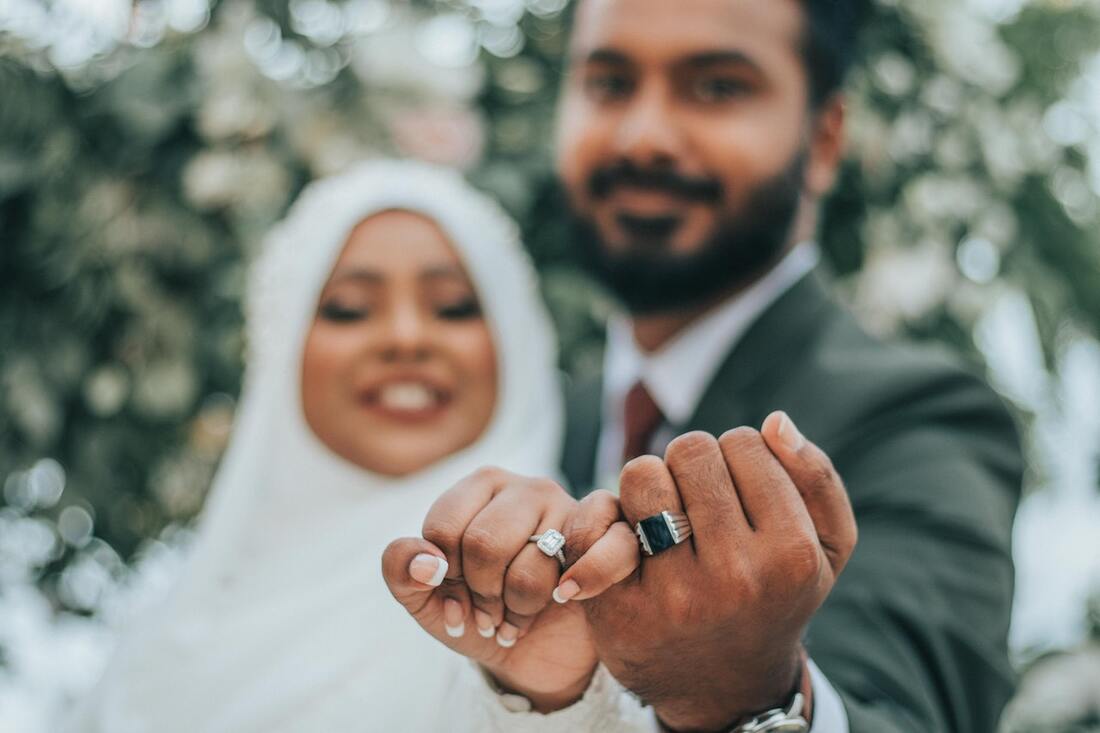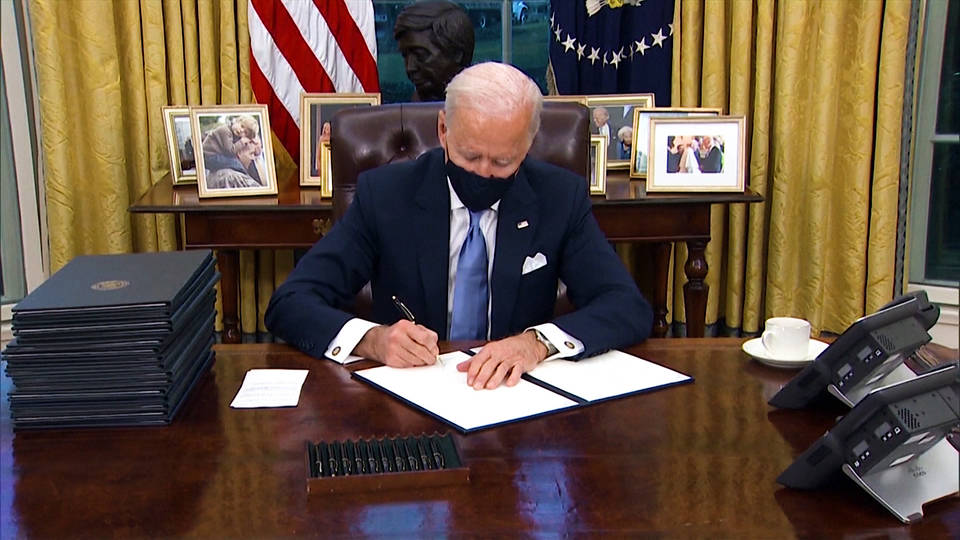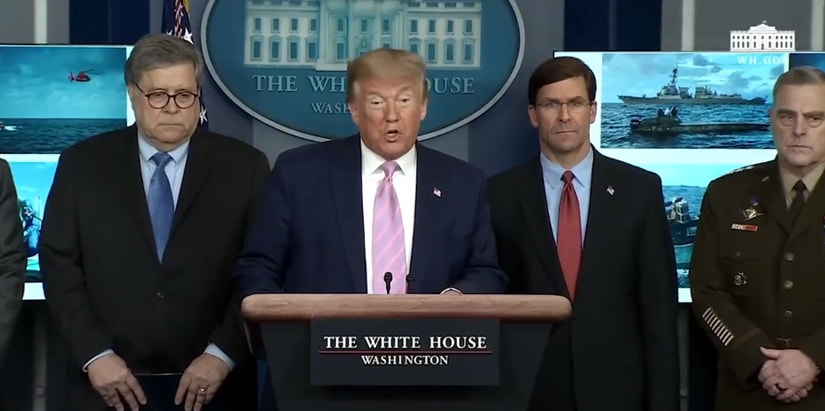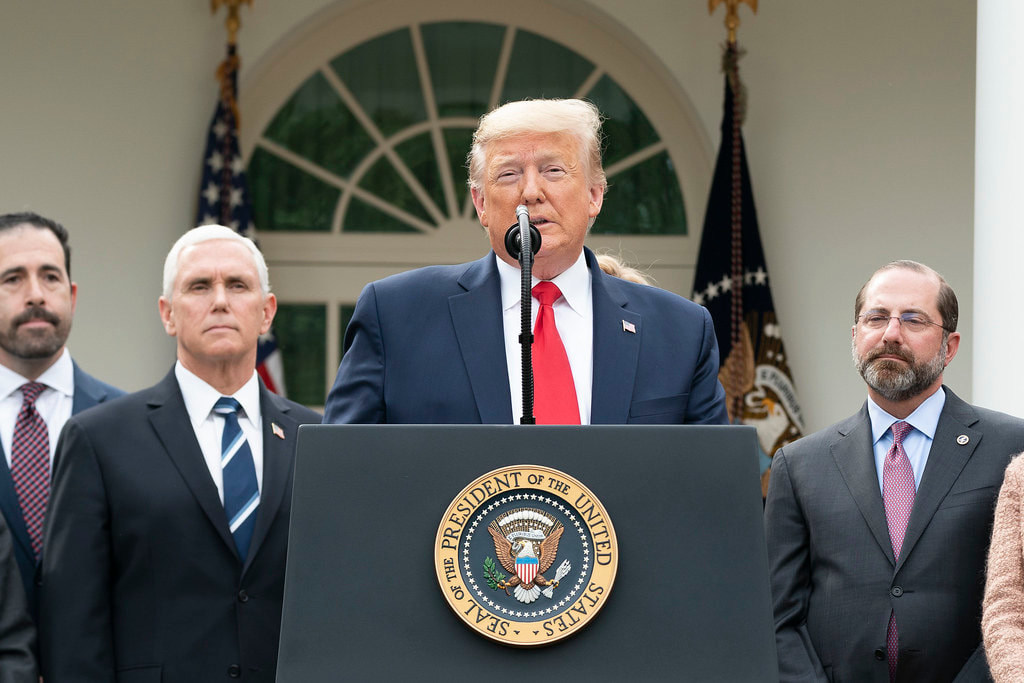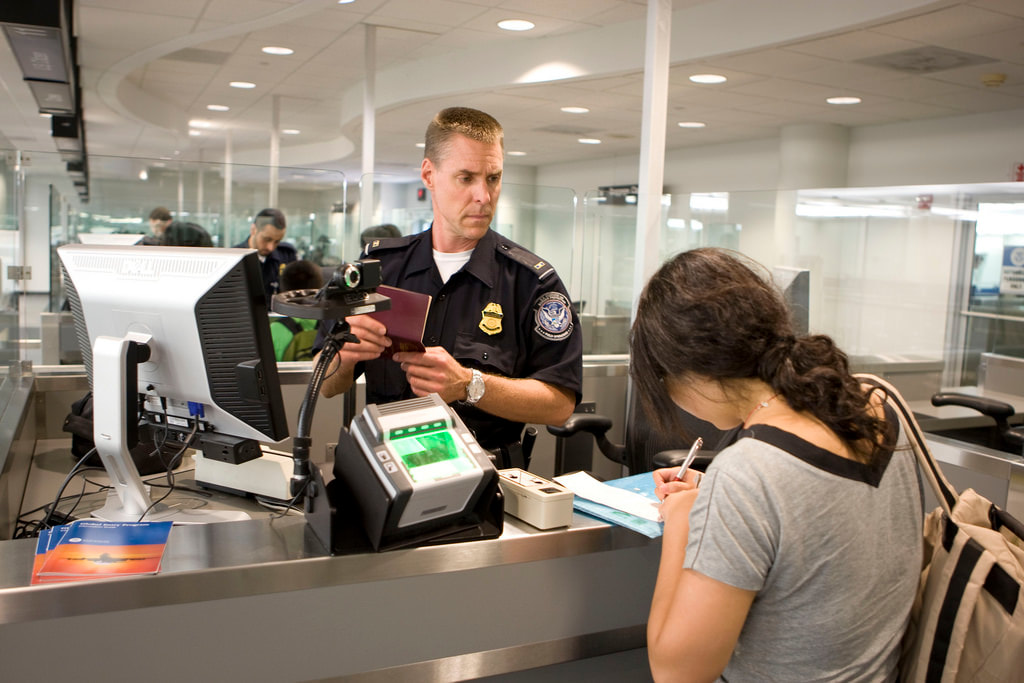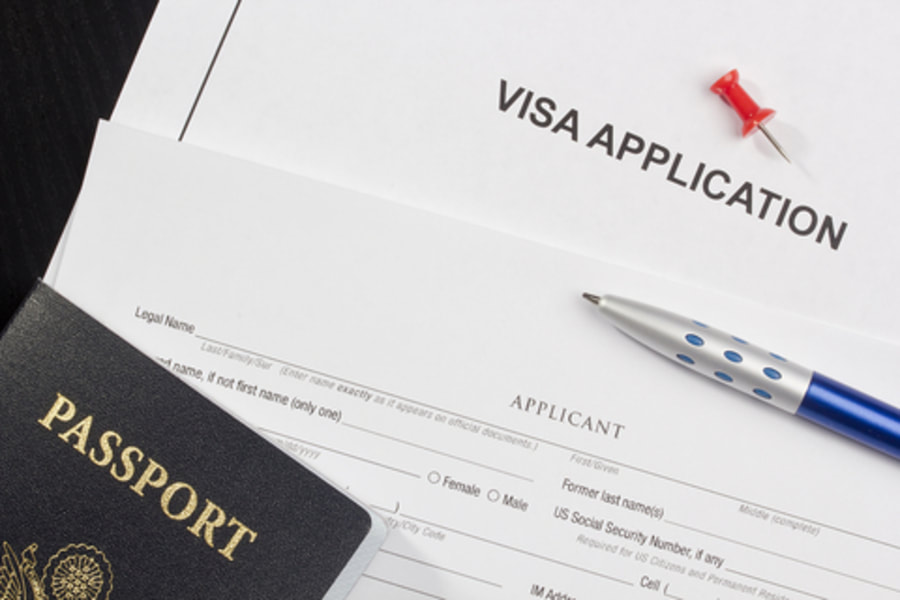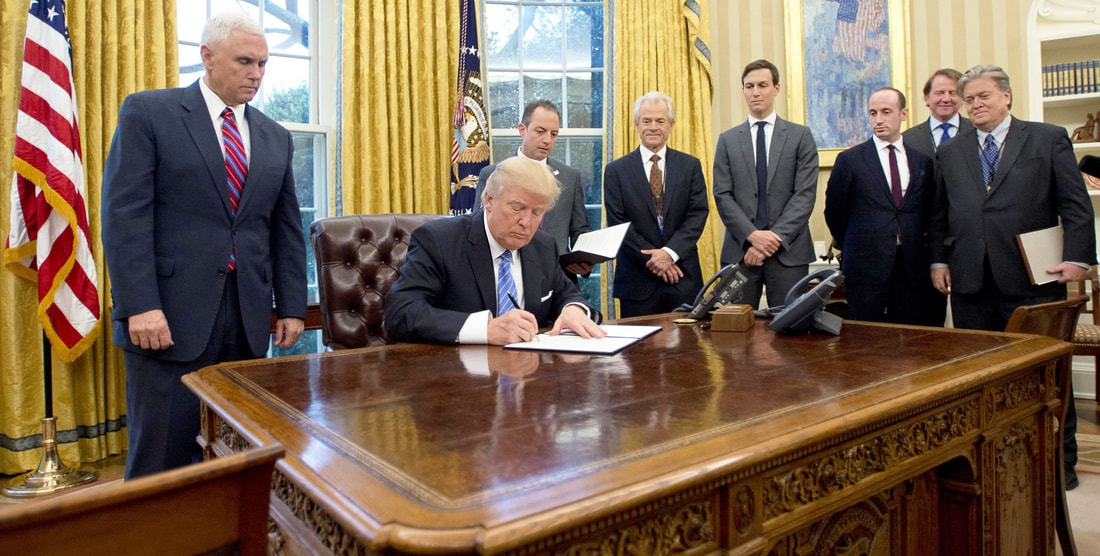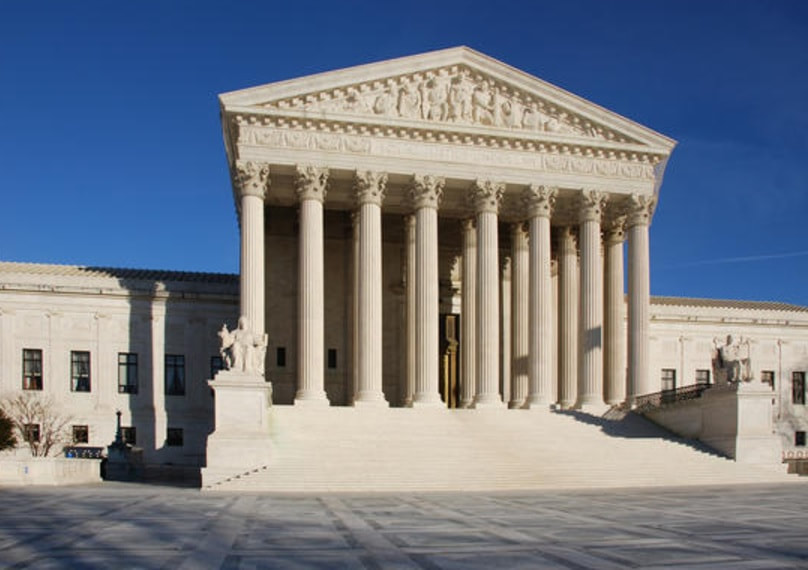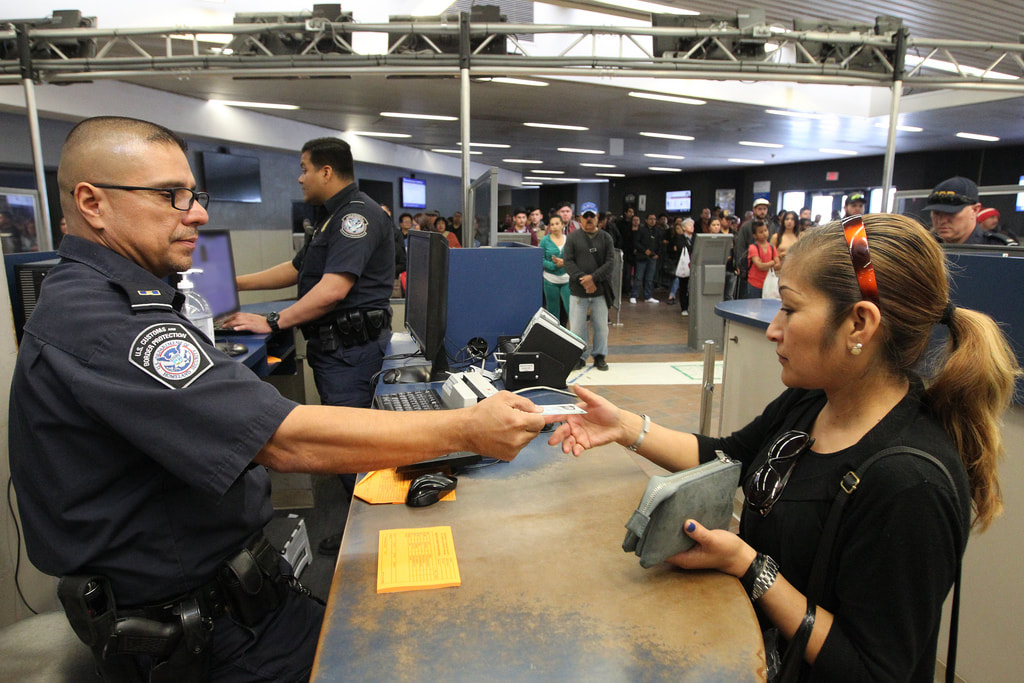|
Are you looking to get a green card through marriage in 2024? This comprehensive guide covers everything you need to know about the marriage green card process, requirements, and tips from experienced immigration attorneys.
1 Comment
The Islamic Revolutionary Guard Corps (IRGC), also known as Sepah, was designated as a terrorist organization by President Trump in April 2019. This designation carries serious immigration repercussions for Iranian males who did their mandatory military service with IRGC or Sepah. There are some distinctions and options depending on whether you are applying for a U.S. immigrant visa or nonimmigrant visa and whether you are applying from outside the United States at an embassy abroad or whether you are applying for an immigrant benefit from within the United States, such as adjustment of status or citizenship (N-400/Naturalization). This article discusses obstacles and strategies arising from a case involving an IRGC mandatory service.
If you are a Muslim living in the USA and looking to sponsor your spouse for a green card who is currently in the United States, you may be facing some unique challenges in the immigration process. As an immigration law firm with extensive experience working with clients from Muslim / Islamic countries and communities, we understand the specific needs and concerns of our Muslim clients. In this article, we will guide you through the process of sponsoring your Muslim spouse for a green card in the USA and provide tips and insights to help you navigate the process with confidence.
Navigating the United States immigration process can be challenging, particularly for Iranian couples seeking a marriage-based green card. With unique cultural and geopolitical factors at play, it is crucial to understand the requirements, steps, and common concerns associated with obtaining a green card through marriage. In this comprehensive guide, we will address the top 10 frequently asked questions about marriage-based green cards for Iranian couples and provide valuable insights to help you confidently navigate the process.
For Iranian citizens residing in the United States as permanent residents, maintaining a valid and up-to-date green card is essential for securing the rights and privileges associated with legal status. Green card renewal and replacement are crucial aspects of this process. In this comprehensive guide, we will discuss the scenarios that may warrant green card renewal or replacement and provide step-by-step instructions for Iranian citizens to successfully navigate the process while following all the necessary U.S. immigration laws and regulations.
Navigating the complex world of U.S. immigration can be daunting for anyone, but the process can be especially challenging for Iranian applicants seeking a green card. One critical component of the green card application process is securing a joint sponsor if the sponsor of your application does not have sufficient income to support the intending immigrant. In this comprehensive guide, we will explore the role of a joint sponsor, discuss the eligibility criteria, and outline the responsibilities and requirements of being a joint sponsor for Iranian green card applicants.
The consular processing interview is a crucial step in the U.S. immigration process for Iranian applicants seeking a green card or nonimmigrant visa. Proper preparation can significantly increase your chances of success and reduce the stress associated with the process. In this article, we provide helpful tips and guidance for Iranian applicants to ensure they are well-prepared for their consular processing interview.
The United States offers numerous opportunities to immigrants seeking to build a life in the country. For Iranian couples, marriage to a U.S. citizen or lawful permanent resident is one of the most common paths to obtaining permanent residency (a green card). However, the process can be complex, particularly for conditional green cards. This comprehensive guide will provide an overview of conditional green cards for Iranian couples, exploring the requirements, application process, and the steps to remove the conditions and obtain a permanent green card.
Maintaining legal status is paramount for many Iranians living in the United States. Whether you're in the US on a temporary visa or as a permanent resident, understanding your obligations and the requirements of your immigration status is essential. This comprehensive guide aims to provide valuable information for Iranians in the US to maintain their legal status and avoid any potential pitfalls or complications.
The I-130 Petition for Alien Relative is a critical step for Iranian citizens looking to bring their family members to the United States. This comprehensive guide will give you everything you need to know about the I-130 petition, including eligibility requirements, necessary documentation, and filing processes. By understanding the intricacies of the I-130 petition, Iranian applicants can better navigate the complexities of U.S. immigration law and increase their chances of a successful outcome.
Navigating the complex world of immigration law can be daunting for anyone, but it can be especially challenging for Iranian applicants seeking a green card. One critical aspect of the green card process is understanding the role of a sponsor. This article will delve into the importance of sponsorship, the responsibilities and qualifications of a sponsor, and how Iranian applicants can find the right sponsor to support their green card application.
For Iranian couples seeking to obtain a green card in the United States, the process can be both exciting and challenging. One of the most critical aspects of the journey is gathering and submitting the necessary documentation. It is essential to pay close attention to the required documents, as any missing or incorrect information may lead to delays or even denials of your application. This comprehensive guide will outline the crucial documentation for Iranian couples pursuing a green card through marriage.
The K-1 Fiancé Visa is a popular and well-known route for Iranian couples looking to unite in the United States. Obtaining a K-1 visa can be a complex and time-consuming process, but with the right preparation and guidance, it's possible to navigate it successfully. This article will provide you with the top tips for a successful K-1 Fiancé Visa application for Iranians, covering essential aspects of the process, common pitfalls, and best practices to follow.
As one of the best immigration law firm for Persian/Farsi-speaking clients, ImmigraTrust Law understands Iranians' unique challenges when navigating the U.S. visa process. One common goal for many of our clients is to bring their fiancé to the United States. The fiancé visa, also known as the K-1 visa, allows a U.S. citizen to sponsor their fiancé to come to the United States to get married.
In this article, we discuss the typical questions regarding fiancé visas and all you need to know when exploring a fiancé visa also known as a K-1 visa. You can feel confident and secure in applying for a fiancé visa after reading this article written by our best fiancé/K-1 visa immigration lawyers. In this guide, we cover these questions:
Are you a U.S. citizen or legal permanent resident (green card holder) who has a girlfriend, boyfriend, fiancé, husband or wife that is abroad? If you recently got engaged, planning on getting engaged, or getting married, congratulations! You have a lot of exciting things to plan. “What is the quickest way to get my fiancé to the United States?” is probably a top question on your list. As well as questions such as “Should we get married? Is the visa for marriage better compared to fiancé visa?”
President Biden stopped the Muslim Ban yesterday. I have been wanting to put into words how I feel. I am happy, most definitely. At the same time, I feel a weird sense of unease. The Ban has defined my professional life for the last four years. I wrote an article regarding the Muslim Ban that received thousands of inquiries.
(Update December 31, 2020: President Trump extended these restrictions to March 31, 2021.)
Yesterday, June 22nd, President Trump issued a new Presidential Proclamation suspending the entry of immigrants and some nonimmigrants (there are some exceptions, explained more below). Here is what you need to know about how this travel restriction and suspension may apply to you and your family and what you can do. (Update December 31, 2020: President Trump extended these restrictions to March 31, 2021.)
Yesterday, April 22, 2020, President Trump issued a new Presidential Proclamation stopping green card applications from abroad during the coronavirus (COVID-19) pandemic and economic downturn. Here is what you need to know about how this travel restriction and suspension may apply to you and your family and what you can do. When coming back to the United States from a trip abroad, everyone has to pass through passport control. For green card holders, this is can be a smooth process. However, sometimes green card holders are asked more questions and are required to go through a second screening process. If this happens to you or your family member, it is important that you know your rights.
It is a common misconception to think that prior approval from immigration agencies will be a positive factor for new immigration applications. That is not always the case. And, in fact, immigration agencies came out with a new explicit rule this fall that prior approval will not be taken into consideration when evaluating extensions of nonimmigrant visas.
The United States Citizenship and Immigration Services (USCIS) announced this fall that in accordance with President Trump’s Executive Order issued on March 6, 2017, all applicants that filed an I-140 (Immigration Petition for Alien Worker) will be required to attend an interview.
HAPPY NEWS: Travel Ban 3.0 BLOCKED by Hawaii once again. This decision will likely be appealed. We have to wait to see what the Supreme Court does ultimately once it sets oral arguments. But, for now, GREAT news!
President Trump issued a Muslim Travel Ban earlier in the year prohibiting travel of foreign nationals from six Muslim-majority countries: Syria, Iran, Libya, Somalia, Sudan, and Yemen. However, the Muslim Travel Ban was blocked by courts in various states. On Monday, June 26, 2017, the United States Supreme Court agreed to hear the case on the Muslim Travel Ban to resolve the issue once and for all. The Supreme Court will hear oral arguments in October 2017. Until a final decision is made, the Supreme Court has allowed a limited version of the Muslim Travel Ban to go back into effect.
Border control agents at the airport have great leeway on what they can search from persons to belongings. The 4th Amendment of the Constitution protects against unreasonable searches. However, searches at the border fall under a special exception that allows border agents to have a greater ability to search you and your belongings.
In the age of electronic devices that store nearly our entire lives, the issue of how far the border search exception can reach into our digital world has not been fully settled. Thus, there is no uniform implementation and your experience can vary based on the airport and the border control agent. However, there are some general rules, precautions, and tips that you should know if you ever encounter this situation. |
PostsLatest posts and news from our top immigration lawyers Archives
June 2024
Categories
All
|
- Home
- 🗽TELL US ABOUT YOUR CASE
- About Us
- فارسی
- Book Online
- Reviews
-
Services
-
Visas
>
- Fiance (K-1)
- Extraordinary Ability (O)
- NAFTA Professionals (TN)
- Treaty Traders (E-1 Visa)
- Treaty Investors (E-2)
- Professional (H-1B)
- Visitors (B)
- Student (F-1)
- Intercompany Transfers (L-1)
- Religious Workers (R)
- International Organizations (G)
- Australian Professionals (E-3)
- Exchange Visitors (J)
- Cultural Exchange (Q)
- Diplomats (A)
- Trainees or Special Education Exchange Visitor (H-3)
- Journalists (I)
- Green Cards >
- Investors >
- Citizenship
- Employers >
- Mandamus Lawsuits for USCIS Delays ⚖️
-
Visas
>
- Blog
Trust in Us with Your Immigration Success! |
|
|
Immigration lawyer Najmeh Mahmoudjafari, Esq. (ImmigraTrust Law) represents immigration law clients nationwide (all 50 States), globally and also in and around Orange County, including: Costa Mesa | Corona del Mar | Cypress | Fountain Valley | Garden Grove | Huntington Beach | Irvine | Los Alamitos | Los Angeles | Mission Viejo | Newport Beach | Orange | San Diego | San Francisco | Santa Ana | Stanton | Tustin | Westminster
Disclaimer
The information provided on ImmigraTrust's website is for general informational purposes only and does not constitute legal advice. Every legal situation is unique; for specific advice tailored to your circumstances, please consult with a qualified attorney. Contacting ImmigraTrust Law through this website does not establish an attorney-client relationship. Please do not send any confidential information until such a relationship has been established in writing. |
©2024 by ImmigraTrust Law.



